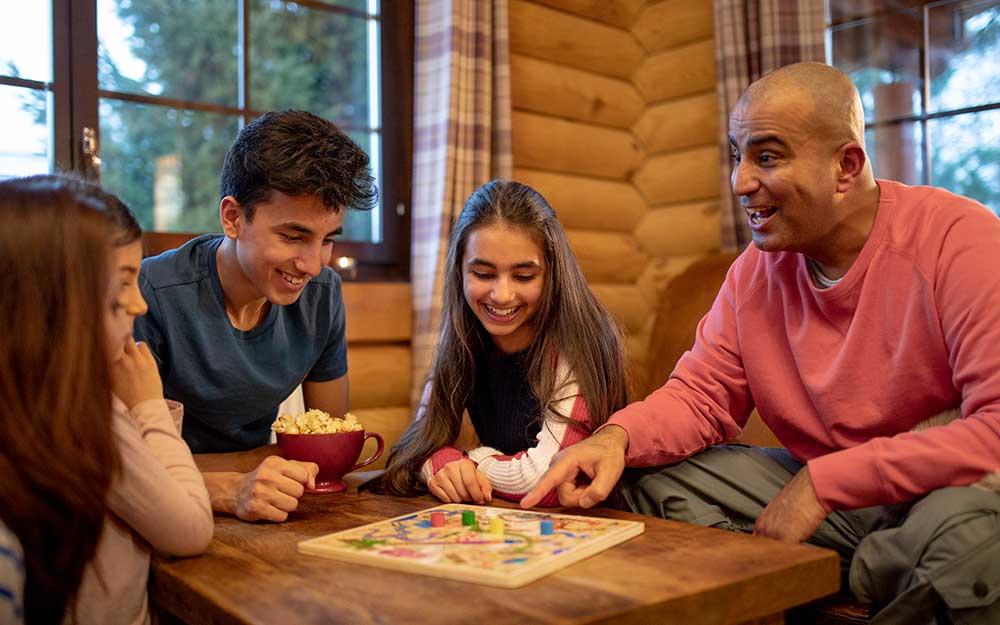As the temperature drops across the U.S., many who have been finding reprieve from the COVID-19 pandemic by spending time outside are again facing a change in routine. That increased time spent inside with reduced social contact may leave them struggling with symptoms of anxiety and depression. Dr. Rachel Leonard, PhD, clinical director for Rogers’ Twin Cities clinics, offers advice and coping strategies for dealing with the unknowns of COVID-19 during winter.
Stay connected to family and friends
With COVID-19 cases rising throughout the U.S. and social distancing still a recommended practice, not everyone will be enjoying the holidays face to face—but that doesn’t mean your favorite family traditions need to be pushed aside.
Dr. Leonard suggests finding creative ways to stay connected throughout the holidays. While not a one-to-one replacement for time spent together in person, using technology for a family activity, hosting a virtual cookie decorating competition, or joining a video call to watch a football game are some ways that you can partake in a favorite holiday tradition or create new ones.
Explore new skills and hobbies
These days, it’s all too easy to slip into the pitfall of watching endless hours of TV. Dr. Leonard advises to try and avoid this from happening by finding a new hobby. Virtual book clubs or game nights create something that you can regularly look forward to and provide a social outlet. If it’s now too cold for your go-to outdoor activity, you may be able to bundle up and find a new outdoor hobby that you enjoy.
“It can be helpful to learn something new with another person—both for social reasons and for increased accountability,” Dr. Leonard says. “Do you have a friend or family member who wants to learn something new with you? You could meet on video chat regularly to check in together and discuss how things are going.”
Keep a routine
People with depression may have stopped following their usual schedule. They might be sleeping later into the morning or engaging in other unhealthy behaviors in an attempt to avoid painful feelings. Reestablishing or keeping up with a routine can help alleviate symptoms and prevent those who are struggling from feeling worse.
“Consistency in scheduling can help combat the tendency for these avoidance behaviors to increase,” Dr. Leonard says. “Continuing to shower in the morning, changing into different clothes, and getting ready for the day often have a positive impact on mood.”
Stay active in creative ways
Many gyms remain closed while chilly temperatures prevent outdoor activities, but there are a number of ways to get moving while at home. In addition to at-home exercise equipment like weights or a stationary bike, YouTube has a plethora of workout and yoga videos that don’t require equipment. Dr. Leonard also stresses that you don’t need to do anything formal.
“It’s also helpful to get creative with your exercise,” she adds. “This could be cleaning your home, dancing with your kids, or completing a household project that requires some physical activity.”
Rogers can help
Unsure if you could be suffering from depression? Take our quiz that can help flag symptoms. If you are interested in treatment at Rogers, call 800-767-4411 for a free, confidential screening or request one online.


